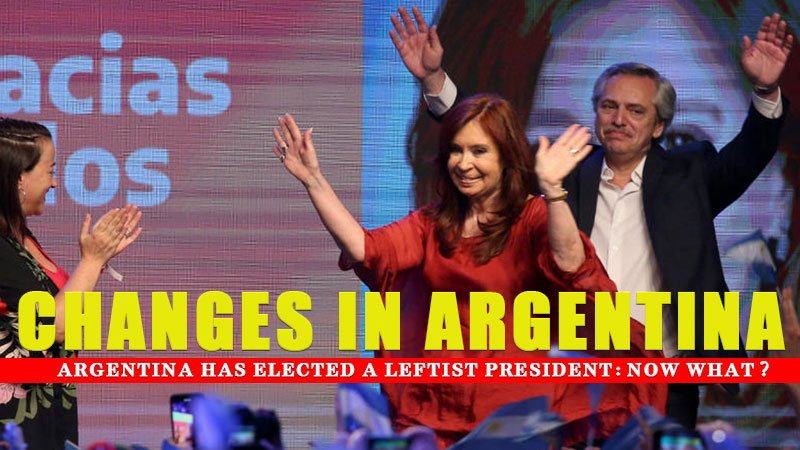
What Happened
Center-left candidate Alberto Fernandez won Argentina’s Oct. 27 presidential election with roughly 48 percent of the vote, eliminating the conservative incumbent Mauricio Macri, who received roughly 40 percent. Fernandez defends greater state intervention in the economy and expansionary fiscal policies, as opposed to Macri’s business-friendly and deficit-tightening positions. Fernandez’s inauguration as president on Dec. 10 will mark a change of direction for Argentina in several areas:
Monetary Policy: The Argentine peso lost more than 80 percent of its value during Macri’s four-year term. Shortly after the election results were announced, Buenos Aires announced the tightening of capital controls to prevent the peso from devaluing any further against the U.S. dollar. But upon taking office, Fernandez has promised to make the peso “competitive,” which suggests additional devaluations are likely. A prolonged period of tight capital controls could make it harder for multinational businesses operating in Argentina to repatriate revenue to their home countries.
View our Blog: https://ensembleias.com/blog/
Argentina’s annual inflation rate is expected to exceed 50 percent this year. To keep it under control, Fernandez plans to work with local and foreign companies to place a six-month freeze on the prices of food and other products. But he’s also pledged to boost domestic consumption by raising salaries in the private and public sectors above the inflation levels, which is likely to push inflation up.
IMF Bailout: Fernandez will also decide the fate of Argentina’s financial bailout program with the International Monetary Fund (IMF). The president-elect has sent contradicting messages in this regard: He’s said he will not default on Argentina’s debt with the IMF and private bondholders but has also stated wouldn’t implement the kinds of austerity measures currently tied to the deal and would renegotiate its terms. Fernandez will likely try to reach a deal with the IMF before making any unilateral moves, though Argentina’s withdrawal from the agreement under his administration (and a potential default) cannot be ruled out. The IMF, in the meantime, will probably link the disbursement of future tranches of the bailout to the evolution of future negotiations with the new government.
Foreign Policy: While the Macri administration was critical of the Venezuelan government, Fernandez is likely to pursue a much softer line with President Nicolas Maduro’s regime. Argentine relations with Brazil will probably weaken as well, especially if Fernandez adopts protectionist measures that create additional barriers to trade within the South American bloc Mercosur. Fernandez’s victory also increases the chances of Argentina failing to ratify the free trade agreement between Mercosur and the European Union, which both blocs signed earlier this year.
What’s Ahead for Argentina?
Fernandez’s Citizen’s Unity Party secured a majority in the Argentine Senate during the legislative election also taking place Oct. 27. But the party will still need to reach agreements with other smaller, provincial parties to pass legislation in the lower house, the Chamber of Deputies. This means that Fernandez will likely have to negotiate to approve legislation, such as the government’s 2020 budget.
The harsh realities of Argentina’s economic crisis risk cutting Fernandez’s honeymoon period short once he takes office on Dec. 10.
Another important question regarding Argentina’s future political stability is the relationship between Fernandez and his running mate, former Argentine President Cristina Fernandez de Kirchner. While Argentina’s Constitution grants vice presidents a limited role in policymaking, Cristina Fernandez will probably try to expand her influence in government decisions well beyond her formal attributions, which could create tensions between the new president and vice president.
Fernandez will also take over at a time of rising social unrest in several Latin American countries, including Chile, Bolivia and Ecuador. The new Argentine government will try to keep domestic unrest within tolerable margins by increasing public spending and reintroducing some of the subsidies that were rescinded during the Macri administration (such as on utilities). But Buenos Aires will have limited room to do so given the country’s deep recession and its currency’s diminishing value. Indeed, with the economy expected to shrink by another 3 percent this year, the harsh realities of Argentina’s financial situation risk cutting Fernandez’s honeymoon period short once he takes office in December.
SOURCE: Worldview | Stratfor
Visit our store at http://online.ensemble.net.in



